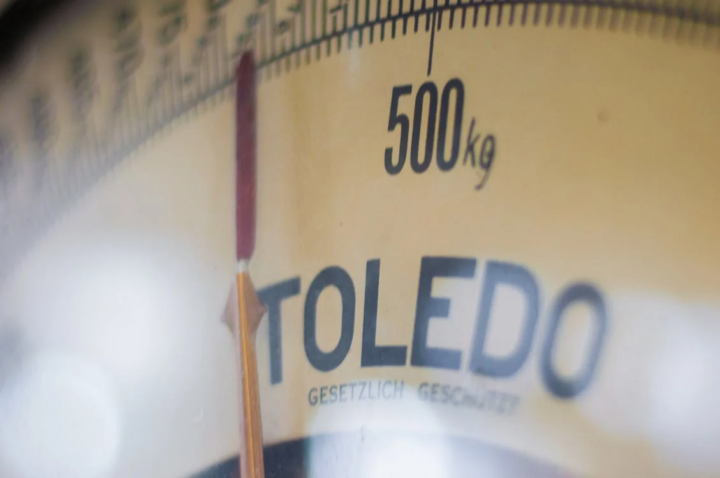Understanding the Different Types of Weighting Scales
Weight scales, whether used in a fitness center, a doctor’s office, or in the convenience of our homes, are an integral part of monitoring our health. However, not all scales are created equal. There are various types, each with unique features and purposes, designed to meet specific needs.
In this educational exploration, we will delve into the diverse world of weighing scales, from the basic mechanical scales to the ultra-modern digital scales, and even the sophisticated analytical balances used in laboratories. This comprehensive guide will shine a light on their distinctions, functionalities, and the right scenarios for their use.

Mechanical Scales (Analog Scales)
These are traditional scales with a simple design. They work on the principle of spring balances. As weight is applied, the internal spring compresses and moves a pointer across a calibrated dial. These scales are often seen in doctor’s offices or at fitness centers, and they are accurate to within one pound.
However, because the dial is difficult to read, they require manual recording of results. Furthermore, from online stores like 1800scales to the local pharmacy, mechanical scales are available in a range of sizes and weights – from light-duty to super heavy-duty models. The main advantage of mechanical scales is their low cost and ease of use.
Digital Scales
Modern and popular for their precision, digital scales use electrical resistance to calculate weight. They display readings on an LCD screen, often with options to switch between units of measurement. Consumers generally use digital models for their convenience, and they are often used to monitor weight in the home.
Digital scales come in a wide range of designs and sizes, from basic (slim-profile) models with low accuracy to more advanced models that can provide additional information such as body fat percentage or body water content. Some digital scales also offer memory recall functions so that users can monitor their weight over time.
Body Fat Scales
These scales are digital scales equipped with bioelectrical impedance analysis. In addition to weight, they provide information on body fat percentage, muscle mass, and sometimes even metabolic age and bone mass. They are used by fitness enthusiasts, athletes, and dieters.
The scale is able to determine body composition by passing a very low electrical current through the body. However, body fat scales can be inaccurate; incorrect readings may occur due to changes in hydration levels or time of day. Most are designed for use in the home, but there are more sophisticated models used in medical settings.
Physician’s Scales (Balance Beam Scales)
Common in medical settings, these scales use a balance beam system, offering extremely accurate weight measurements. They often come with a height rod to also measure the user’s height. The weight is determined by sliding a series of weights along the beam until it balances. Due to their design, physician’s scales can weigh up to 500 pounds and are usually the most accurate type of scale available. They are also very durable and long-lasting, making them ideal for professional use.
Analytical Balances
Primarily used in laboratories, these are precision scales capable of measuring tiny weights, often to the microgram. They typically have a glass enclosure to prevent air currents from affecting the measurement. Analytical balances use electromagnetic force compensation to detect the weight and display the results electronically.
They are also equipped with filters to mitigate ambient temperature changes and vibration, making them extremely accurate and reliable. These high-end scales are used in a variety of scientific disciplines such as chemistry, biology, geology, food science, and metallurgy.
Kitchen Scales
These scales are designed for measuring ingredients in cooking and baking. Available in both mechanical and digital versions, they provide precise measurements to ensure accuracy in recipes. Digital models work in much the same way as regular digital scales but usually have larger platforms for measuring food items. Kitchen scales come with a variety of features such as tare weight buttons and conversion functions. They are also available in different styles, from traditional to more modern designs.
Industrial Scales
These are large scales designed for weighing heavy items in industrial settings. Varieties range from platform scales for weighing large packages to crane scales for heavy loads in construction or shipping industries. The most common type is the floor scale, which can be used for a variety of industries such as manufacturing and warehousing.
Industrial scales are usually equipped with features like overload protection and multiple weighing units, as well as options to connect to computers or printers for data recording purposes. They are also highly accurate, some are able to measure weights down to the milligram level.
No matter what type of weighing scale is needed, it is important to consider features like accuracy, capacity, durability, and portability. Knowledge about the available types will help make a more informed decision when shopping for scales. From kitchen ingredients to industrial loads, all can be weighed with precision and confidence.
In addition, if you are unsure which model best fits your requirements, it is always recommended to get in touch with an expert or consult the manufacturer’s product information. From there, you can find the perfect scale suited to your needs.


